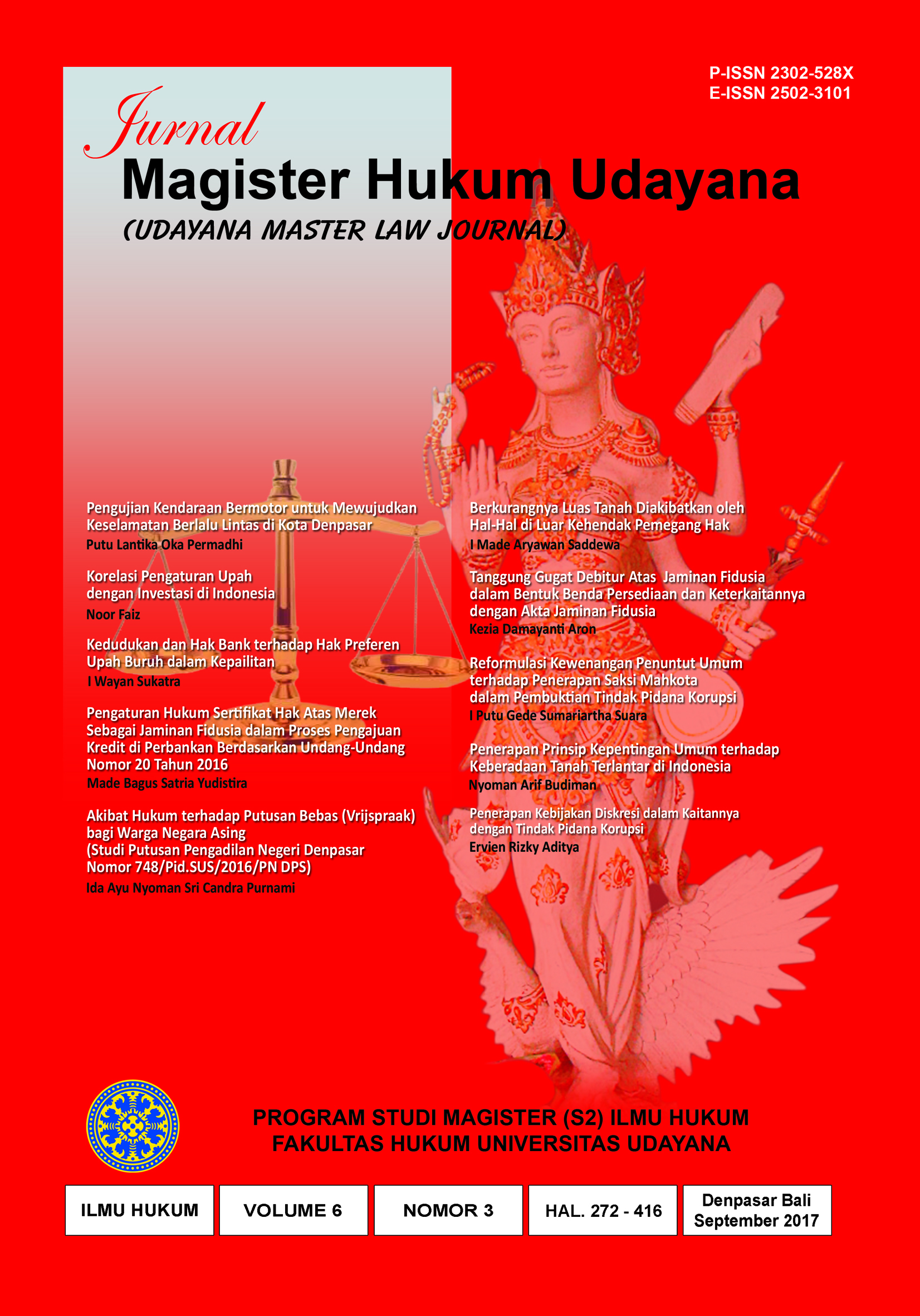REFORMULASI KEWENANGAN PENUNTUT UMUM TERHADAP PENERAPAN SAKSI MAHKOTA DALAM PEMBUKTIAN TINDAK PIDANA KORUPSI
Abstract
Regarding the regulation and application of the crown witness by the public prosecutor in handling corruption case as stated in the Criminal Law of Formil applicable in Indonesia in this case KUHAP (Indonesian Criminal Procedural Law Code) especially Article 142 Indonesian Criminal Procedural Law Code still cause the existence of obscurity of norm so that in practice of judiciary there is no definite measure about application criteria a crown witness by a public prosecutor in the proof of a criminal case, especially a criminal act of corruption. As for the matters discussed in this regard that is about 1) Arrangement of the Public Prosecutor's Authority on the application of the crown witness in the proving of corruption crime according to the perspective of Indonesian Positive Law (Ius Constitutum) covers the setting up of the crown witnesses in positive law in Indonesia as well as comparative regulation of crown witnesses in the United States and the Netherlands and 2) Formulation of Authority for the Public Prosecutor on the application of the crown witness in the proving of corruption in accordance with the perspective of the coming Law (ius Constituendum) includes the appropriate term used to mention the crown witness, the limits of the application of the crown witness, the plea bargain adaptation system in the Positive Law in Indonesia, the requirements of being a crown witness, the proper punishment of the crown witness and the formulation of Article 142 of the Indonesian Criminal Procedural Law Code so as to grant the limitative authority to the Public Prosecutor against the application of the crown witness
Mengenai pengaturan dan penerapan saksi mahkota oleh penuntut umum dalam penanganan perkara tindak pidana korupsi sebagaimana tercantum dalam Hukum Pidana Formil yang berlaku di Indonesia dalam hal ini yaitu KUHAP khususnya Pasal 142 KUHAP masih menimbulkan adanya kekaburan norma sehingga dalam praktek peradilan belum terdapat ukuran yang pasti mengenai kriteria penerapan saksi mahkota oleh penuntut umum dalam pembuktian suatu perkara pidana khususnya tindak pidana korupsi. Adapun yang dibahas dalam hal ini yaitu mengenai 1) Pengaturan Kewenangan Penuntut Umum terhadap penerapan saksi mahkota dalam pembuktian tindak pidana korupsi menurut perspektif Hukum Positif Indonesia (Ius Constitutum) meliputi pengaturan saksi mahkota dalam hukum positif di Indonesia serta perbandingan pengaturan saksi mahkota di Negara Amerika Serikat dan Belanda dan 2) Formulasi Kewenangan Bagi Penuntut Umum terhadap penerapan saksi mahkota dalam pembuktian tindak pidana korupsi menurut perspektif Hukum yang akan datang (Ius Constituendum) meliputi istilah yang tepat dipakai untuk menyebutkan saksi mahkota, batas-batas penerapan saksi mahkota, adaptasi plea bargain system dalam Hukum Positif di Indonesia, syarat-syarat menjadi saksi mahkota, pemidanaan yang tepat diterapkan terhadap saksi mahkota serta formulasi Pasal 142 KUHAP sehingga memberikan kewenangan secara limitatif kepada Penuntut Umum terhadap penerapan saksi mahkota.
Downloads
Jurnal Magister Hukum Udayana (Udayana Master Law of Journal) by Faculty of Law Udayana University is licensed under a Creative Commons Attribution-NonCommercial 4.0 International License.



















